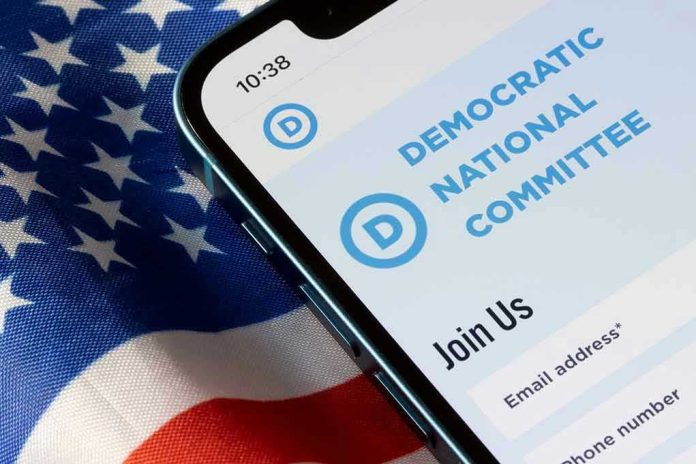
Covert payments to online influencers by a progressive “dark money” group now threaten the integrity of digital public discourse—raising alarms for anyone who values transparency, constitutional safeguards, and honest debate.
Story Snapshot
- The Sixteen Thirty Fund secretly launched a program to pay Democratic influencers up to $8,000/month to push coordinated messaging online.
- Recruitment occurred in private group chats, with public awareness only surfacing months later through leaked communications.
- The program operates without donor transparency, fueling concerns over “dark money” political influence and erosion of trust in online content.
- Expert observers warn these tactics blur the line between authentic and paid advocacy, undermining public trust and traditional values.
Progressive “Dark Money” Group Funds Secret Online Influence Campaign
In mid-2025, revelations emerged about the Chorus Creator Incubator Program—a covert initiative designed by the Sixteen Thirty Fund to pay select online creators for amplifying Democratic-aligned messaging across social platforms. Participants reportedly received $8,000 each month, with recruitment conducted in private group chats shielded from public view. The secretive nature of the program and its substantial financial incentives have sparked intense concerns among conservative observers, who see this as a direct assault on transparency and an attempt to manipulate digital public opinion without proper oversight.
The Sixteen Thirty Fund’s role as a fiscal sponsor for progressive causes is well documented, but its operations have long drawn criticism for their opacity. Managed by Arabella Advisors, the fund channels hundreds of millions of dollars into advocacy campaigns with no donor disclosure requirements, earning it the label of “dark money” powerhouse. By mirroring tactics pioneered by conservative networks, such as the Koch brothers, the Fund has become a central player in the left’s efforts to shape online messaging. However, the lack of transparency in both funding and messaging raises serious questions about the integrity of digital advocacy and the risk of eroding constitutional values through undisclosed influence.
Recruitment and Secrecy: How the Program Operates
From June to August 2025, private group chats became the primary channel for recruiting dozens of Democratic political influencers into the Chorus Creator Incubator Program. These influencers were offered significant monthly payments to amplify coordinated messaging, with the program’s existence hidden from the broader public until details leaked several months later. The recruitment strategy—operating outside of public scrutiny—has heightened concerns about “dark money” tactics infiltrating online discourse. This parallels past leftist efforts to expand government overreach and manipulate public narratives, drawing renewed scrutiny from conservative watchdogs committed to defending constitutional norms and family values.
Despite mounting public pressure, the Sixteen Thirty Fund has not issued any statement directly addressing the program, leaving key details about its scope, oversight, and selection criteria unclear. The lack of official transparency only deepens worries about the potential normalization of such paid influencer campaigns in political advocacy. Critics argue these methods undermine honest debate, contribute to the erosion of trust in online content, and set a dangerous precedent for future influence operations—especially when donor identities and strategic objectives remain hidden from voters.
Industry Impact and Expert Perspectives
Political finance experts highlight the growing sophistication of nonprofit-funded digital advocacy, with the Sixteen Thirty Fund at the forefront of these developments. While supporters claim such tactics are a necessary counterbalance to conservative digital influence, critics point out that they mirror the very “dark money” tactics progressives have historically condemned. Scholars of political communication are especially concerned about the blurring of lines between organic and paid content—warning that undisclosed sponsorships erode the public’s ability to distinguish genuine advocacy from orchestrated messaging. As public scrutiny intensifies, calls for increased transparency and stricter regulation of nonprofit political spending are likely to escalate, raising questions about the future integrity of digital political discourse.
In the short term, this secretive program is expected to increase the volume and coordination of Democratic messaging online, potentially fueling backlash over the use of “dark money” and lack of transparency. Over the longer term, the normalization of paid influencer campaigns in political advocacy may further erode trust in online discourse and prompt regulatory scrutiny from both sides of the aisle. The precedent set by the Sixteen Thirty Fund could have lasting effects on the broader digital advocacy sector, with economic, social, and political implications for online audiences, competing influencers, and the future of nonprofit political engagement.
Sources:
Sixteen Thirty Fund official website
About Us – Sixteen Thirty Fund
Our Approach – Sixteen Thirty Fund







